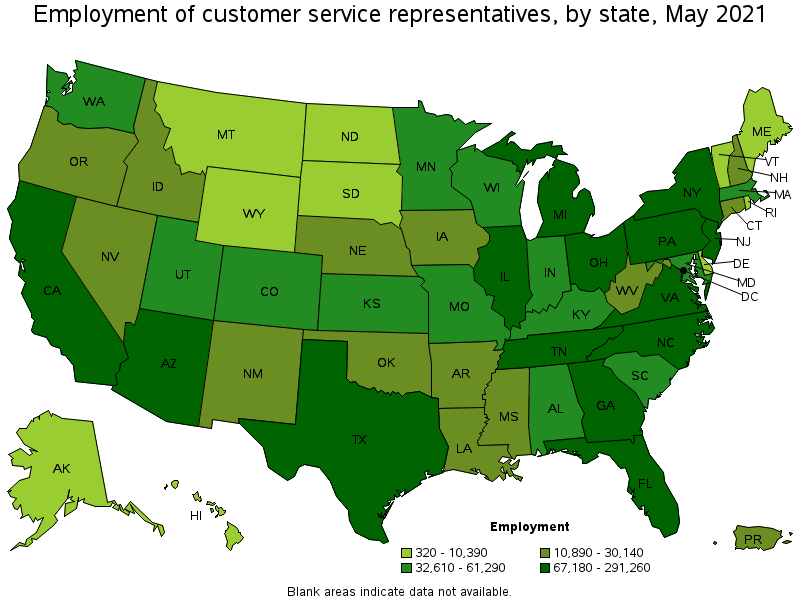Exploring Career Advancement Opportunities for Remote Customer Service Representatives
"To give real service, you must add something which cannot be bought or measured with money, and that is sincerity and integrity." - Douglas Adams
Brief Insight
Career options for Remote Customer Service Representatives may include advancing to a managerial role, transitioning into a different area of customer services such as sales or technical support, or pursuing higher education to specialize in a particular field. The job market for remote customer service roles is growing as more companies recognize the benefits of remote work and the importance of providing quality customer service to their clients.

PHOTO: https://www.pexels.com/uk-ua/@andrew/
Career Options for Remote Customer Service Representatives
Remote customer service representative roles can be a great starting point for those looking to begin their career in customer service. However, there are also many career advancement opportunities for those with experience and the right skill set.
Here are some potential career paths for remote customer service representatives:
- Team Leader/Supervisor: As a team leader or supervisor, you would be responsible for overseeing a team of remote customer service representatives. You would be responsible for ensuring the team meets its targets, handling any issues that arise, and acting as a liaison between your team and management.
- Customer Service Manager: As a customer service manager, you would be responsible for managing the entire customer service department. This would include managing customer service representatives, implementing policies and procedures, and ensuring high levels of customer satisfaction.
- Quality Assurance Specialist: As a quality assurance specialist, you would be responsible for monitoring the quality of customer service interactions. You would evaluate customer interactions to ensure that representatives are meeting quality standards and providing excellent customer service.
- Training and Development Specialist: As a training and development specialist, you would be responsible for creating and delivering training programs to new and existing remote customer service representatives. You would also be responsible for keeping the training programs up-to-date with any changes in policies or procedures.
- Sales Representative: As a sales representative, you would be responsible for selling products or services to customers over the phone or online. Remote customer service representatives with sales experience may have an advantage when it comes to pursuing a career in sales.
- Operations Manager: As an operations manager, you would be responsible for overseeing the day-to-day operations of the business. This would include managing staff, resources, and budgets to ensure that the business runs smoothly.
Overall, the skills and experience gained as a remote customer service representative can be transferable to many different roles within the customer service industry. With the right combination of skills, experience, and education, remote customer service representatives can pursue a variety of career paths that align with their interests and career goals.
Interesting Fact
Remote customer service representatives play a crucial role in customer satisfaction: Remote customer service representatives are often the first point of contact for customers who have questions or concerns. As such, they play a crucial role in ensuring customer satisfaction and building brand loyalty.
Mastering the Art of Customer Service: Tips and Strategies for Remote Representatives
Remote customer service representative is a growing field in the USA due to the increasing trend towards remote work. There are various job possibilities for remote customer service representatives in the USA. Some of the options include:
- Customer Service Manager: This position involves managing a team of customer service representatives, overseeing their work, and ensuring that they provide high-quality service to customers.
- Technical Support Specialist: This position involves providing technical support to customers who are experiencing issues with a product or service. Technical support specialists typically have more specialized knowledge and expertise than general customer service representatives.
- Sales Representative: Some remote customer service representatives may have the opportunity to transition into sales roles, where they focus on selling products or services to customers.
- Customer Success Manager: This position involves working closely with customers to ensure that they are satisfied with the product or service they have purchased. Customer success managers focus on building long-term relationships with customers and ensuring that they have a positive experience.
- Quality Assurance Analyst: This position involves monitoring customer service interactions to ensure that they meet the company's quality standards. Quality assurance analysts provide feedback and coaching to customer service representatives to help them improve their performance.
Overall, there are many career options for remote customer service representatives in the USA. With the right skills and experience, remote customer service representatives can advance into higher-level roles and build successful careers in this field.

PHOTO: https://unsplash.com/@nullplus
Climbing the Ladder: How to Advance Your Career as a Remote Customer Service Representative
There are several ways to advance your career as a Remote Customer Service Representative, including:
- Gain additional skills: You can take courses or training programs to develop new skills such as sales, technical support, or leadership. This will make you a more valuable asset to your company and increase your chances of promotion.
- Seek out mentorship: Find a more experienced colleague or supervisor who can offer guidance, advice, and support as you progress in your career.
- Take on additional responsibilities: Ask your supervisor for more responsibilities and take on new projects or initiatives that can help you learn new skills and demonstrate your ability to take on more challenging roles.
- Network with others in your industry: Attend industry events and conferences to meet others in your field and build relationships that can help you find new job opportunities or advance in your current role.
- Pursue higher education: Consider pursuing a bachelor's or master's degree in a relevant field such as business, marketing, or communications to gain a deeper understanding of the industry and increase your career prospects.
- Look for promotion opportunities: Keep an eye out for opportunities to move up within your company, such as team leader or management roles, and apply for them when they become available.
- Consider switching companies: If you feel like you have hit a ceiling in your current role or company, consider exploring job opportunities at other organizations that offer more opportunities for growth and advancement.
Last Trends
Virtual training and onboarding: As remote work becomes more common, companies are investing in virtual training and onboarding programs to help remote customer service representatives get up to speed quickly and effectively.
Exploring Different Industries and Sectors for Remote Customer Service Representatives
Remote customer service representatives can work in various industries, depending on the type of products or services provided by their employer. Some common industries include:
- E-commerce: With the increasing popularity of online shopping, many e-commerce companies need remote customer service representatives to handle inquiries, complaints, and returns.
- Technology: Remote customer service representatives can provide technical support and troubleshoot for various products such as software, hardware, and mobile applications.
- Finance: Financial institutions such as banks and credit card companies require customer service representatives to assist customers with their accounts and transactions.
- Healthcare: Remote customer service representatives can work in the healthcare industry, assisting patients with appointments, billing, and insurance claims.
- Travel: Airlines, hotels, and travel agencies need remote customer service representatives to handle bookings, cancellations, and travel-related inquiries.
- Telecommunications: Telecommunications companies require customer service representatives to assist customers with their mobile, internet, and TV services.
Overall, there are numerous industries where remote customer service representatives can work, and as the trend of remote work continues to grow, it is likely that more opportunities will arise.

PHOTO: https://www.bls.gov/oes/current/oes434051.htm
Exploring the Various Specializations for Remote Customer Service Representatives
Remote customer service representatives may specialize in a variety of areas based on the type of business they are working for. Here are some common specializations:
- Technical support: This specialization focuses on providing assistance to customers who are experiencing technical issues with a product or service. Remote customer service representatives in technical support may need specialized knowledge of specific software, hardware, or other technical tools.
- Sales support: This specialization focuses on assisting customers with purchasing decisions and providing information about products or services. Remote customer service representatives in sales support may need to have strong communication and persuasion skills.
- Billing and account management: This specialization focuses on managing customer accounts, processing payments, and resolving billing issues. Remote customer service representatives in this area may need to have strong organizational and problem-solving skills.
- Social media and online support: This specialization focuses on providing customer service through social media channels and other online platforms. Remote customer service representatives in this area may need to have strong writing skills and be comfortable using social media tools.
- Multilingual support: This specialization involves providing customer service in multiple languages. Remote customer service representatives with fluency in multiple languages may have an advantage in this area.
- Escalation management: This specialization involves managing complex customer issues that cannot be resolved by front-line customer service representatives. Remote customer service representatives in escalation management may need to have strong negotiation and conflict resolution skills.
By specializing in a particular area, remote customer service representatives can develop expertise and advance their careers in a specific direction.
Statistical Data
Remote customer service representatives are highly valued by companies: According to a survey by Support.com, 89% of companies believe that providing a positive customer experience is a key competitive differentiator, and remote customer service representatives play a crucial role in achieving this goal.
Alternative Careers and Similar Jobs to Remote Customer Service Representatives: Exploring Your Options
While being a remote customer service representative is a rewarding job, there are several other related career paths that you may also consider. Here are some alternative careers and similar jobs to a remote customer service representative:
- Virtual Assistant: As a virtual assistant, you'll be responsible for providing administrative support to clients from a remote location. Your tasks can include scheduling appointments, managing emails, conducting research, and more.
- Technical Support Specialist: Technical support specialists are responsible for resolving technical issues that customers encounter with their electronic devices, software, or other digital products. They may provide support via phone, chat, or email.
- Customer Success Manager: Customer success managers work to ensure that customers are satisfied with a company's product or service. They may work to retain customers, identify new sales opportunities, and troubleshoot customer issues.
- Sales Representative: Sales representatives are responsible for selling products or services to customers. They may work in a variety of industries, such as technology, healthcare, or consumer goods, and may sell products via phone, email, or in person.
- Social Media Manager: As a social media manager, you'll be responsible for creating and executing social media campaigns for a company or brand. Your tasks can include creating content, managing social media accounts, and engaging with customers on social media platforms.
- Content Writer: Content writers create written content for a variety of mediums, including websites, blogs, social media, and marketing materials. They may conduct research, draft content, and edit and revise content as needed.
- Online Tutor: Online tutors provide academic support to students in a virtual environment. They may work with students of all ages and in a variety of subject areas.
Overall, there are many career paths available for those with customer service skills, and with the rise of remote work, there are more opportunities than ever to work from home in these roles. Consider your skills and interests to determine which path is the best fit for you.

PHOTO: https://www.pexels.com/uk-ua/@vojtech-okenka-127162/
The Job Market Outlook for Remote Customer Service Representatives: Explained
Remote Customer Service Representatives play an important role in modern society by serving as the front line of communication between customers and businesses. As more and more transactions are conducted online and over the phone, the role of the Remote Customer Service Representative has become increasingly vital in ensuring customer satisfaction and loyalty.
In today's fast-paced and competitive business environment, companies rely heavily on their Remote Customer Service Representatives to provide prompt and effective solutions to customer inquiries and complaints. A skilled Remote Customer Service Representative can not only resolve issues but also enhance the customer experience, leading to increased loyalty and repeat business.
Moreover, Remote Customer Service Representatives help to bridge the gap between businesses and their customers, providing valuable feedback on product and service offerings, identifying areas for improvement, and relaying important information back to the business. In this way, they are instrumental in helping companies to better understand and meet the needs of their customers.
Beyond their role in customer service, Remote Customer Service Representatives are also important contributors to the overall success of a business. By providing a positive image of the company, they can help to build brand reputation and attract new customers. Additionally, their ability to identify sales opportunities and cross-sell products and services can help to increase revenue and profitability.
Overall, the role of the Remote Customer Service Representative is critical in modern society, serving as the face and voice of businesses and playing a vital role in ensuring customer satisfaction, loyalty, and success.
Interesting Fact
Remote Customer Service Representatives can have a global impact: Remote customer service representatives can work for companies that have customers all over the world, providing them with a unique opportunity to connect with people from different cultures and backgrounds.
Are Remote Customer Service Representatives in Demand? Exploring Job Market Trends
Remote Customer Service Representatives are in high demand in today's society, particularly due to the growing trend of remote work and the increasing importance of customer satisfaction in the business world.
With the advancement of technology, many companies are transitioning their customer service departments to remote work to cut costs on office space and increase flexibility. Additionally, the COVID-19 pandemic has accelerated the demand for remote work positions in various industries, including customer service. As more companies continue to adapt to the changing business landscape, the demand for Remote Customer Service Representatives is expected to continue growing.
Furthermore, customer satisfaction is a critical factor for the success of any business. As such, companies are investing more resources in their customer service departments to ensure that their clients are happy and their issues are resolved promptly. Remote Customer Service Representatives are an integral part of these departments as they provide quality services to customers while working from remote locations.
In conclusion, Remote Customer Service Representatives are in high demand due to the growing trend of remote work and the increasing focus on customer satisfaction in the business world. As the demand for remote work continues to rise and more companies prioritize customer service, the job market for Remote Customer Service Representatives is expected to remain strong in the future.

PHOTO: https://unsplash.com/@arnelhasanovic
Job Outlook for Remote Customer Service Representatives: Trends and Predictions
The job outlook for Remote Customer Service Representatives is positive, with a projected growth rate of 5% from 2020 to 2030, according to the U.S. Bureau of Labor Statistics. This growth is driven by the increasing demand for customer service across various industries, particularly in the e-commerce and technology sectors. As more companies shift to remote and online operations, there is a growing need for skilled professionals who can provide high-quality customer support from remote locations.
Furthermore, the COVID-19 pandemic has accelerated the trend toward remote work, and many companies are now adopting permanent work-from-home policies for their employees. This has led to an increased demand for Remote Customer Service Representatives who can provide exceptional service from their home offices.
Overall, the job outlook for Remote Customer Service Representatives is positive, with strong demand for skilled professionals in this field. As technology continues to evolve and companies shift towards remote operations, the demand for Remote Customer Service Representatives is likely to remain strong in the years to come.
Last Trends
Video-based support: With the rise of video conferencing technology, companies are exploring ways to use video-based support to enhance the customer experience. This can include video calls with customers or video tutorials to help customers troubleshoot issues on their own.
Part-Time Remote Customer Service Representative Jobs: What You Need to Know
It is possible to get a part-time job as a Remote Customer Service Representative. Many companies offer part-time positions to accommodate workers who need flexible schedules or cannot commit to a full-time job. In fact, some companies specifically seek part-time customer service representatives to handle seasonal or fluctuating call volumes.
Part-time Remote Customer Service Representatives typically work fewer than 40 hours per week and have more flexible schedules. The job duties and qualifications for part-time positions are generally the same as for full-time positions, but the hourly wage and benefits may be prorated based on the number of hours worked.
Part-time positions can be a great option for students, parents, or anyone seeking a work-life balance. However, it is important to note that part-time positions may not offer the same level of job security or advancement opportunities as full-time positions.

PHOTO: https://unsplash.com/@bradneathery
Can You Work as a Remote Customer Service Representative Without Experience?
It is possible to work as a Remote Customer Service Representative without experience, although having relevant experience can increase your chances of getting hired. Many companies offer entry-level positions for individuals without prior experience, providing training to teach the necessary skills and knowledge.
To increase your chances of landing a job as a Remote Customer Service Representative without experience, it can be helpful to have a strong customer service mindset and be comfortable with technology, various software, and tools for customer service operations. Additionally, having a friendly and professional demeanor, good communication skills, and the ability to work independently and manage your time effectively can also be valuable traits.
When applying for Remote Customer Service Representative positions, it can be helpful to emphasize any transferable skills or experiences you have that demonstrate your ability to handle customer inquiries and provide excellent service. For example, experience in a related field such as retail or hospitality can show that you have experience working with customers and managing their needs. Additionally, highlighting any experience working with technology or software programs can show that you are comfortable working with the tools commonly used in remote customer service positions.
Statistical Data
The top skills needed for remote customer service representatives are communication and problem-solving: According to LinkedIn, the top skills needed for remote customer service representatives are communication, problem-solving, customer service, time management, and teamwork.
Exploring Job Satisfaction for Remote Customer Service Representatives
Job satisfaction can vary greatly among Remote Customer Service Representatives depending on various factors such as the company culture, job responsibilities, salary, and personal interests. Some Remote Customer Service Representatives may find the work to be rewarding, as they have the opportunity to help people and solve problems, while others may find the job to be repetitive and stressful.
According to a survey conducted by PayScale, the job satisfaction rating for Remote Customer Service Representatives is 3.7 out of 5, which is slightly above average. The survey also found that factors such as job flexibility, work-life balance, and the ability to work from home can contribute to higher job satisfaction.
In addition, Remote Customer Service Representatives who have opportunities for career growth and development may be more satisfied with their jobs. Some companies offer training programs and opportunities for advancement, which can help Remote Customer Service Representatives to feel more valued and invested in their work.
Overall, job satisfaction for Remote Customer Service Representatives can be influenced by a variety of factors, and it is important for individuals to consider their own preferences and priorities when considering a career in this field.

PHOTO: https://www.pexels.com/uk-ua/@olly/
Advantages of Being a Remote Customer Service Representative: Why It Can Be a Great Career Choice
There are several advantages to being a Remote Customer Service Representative. Here are some of them:
- Flexibility: Remote Customer Service Representatives have the advantage of working from the comfort of their own homes, which means they can enjoy a more flexible schedule. They can work during hours that suit them best and can take breaks as needed.
- Work-life balance: Working remotely as a Customer Service Representative provides an opportunity to achieve a better work-life balance. This means having more time for personal commitments, hobbies, and interests, as there is no need to spend time commuting to and from work.
- Cost savings: Remote Customer Service Representatives can save money on transportation, parking fees, work attire, and meals, which can add up to significant savings in the long run.
- Increased job opportunities: Since Remote Customer Service Representatives are not limited to a specific geographic location, they have access to job opportunities in different states and even countries. This can lead to increased opportunities for career growth and advancement.
- Improved productivity: Working remotely as a Customer Service Representative can lead to increased productivity since there are fewer distractions compared to working in a busy office environment.
- Reduced stress: Remote Customer Service Representatives are not subject to the same level of stress that comes with working in a traditional office setting. They can work in a comfortable environment and take breaks as needed, leading to reduced stress levels.
Overall, being a Remote Customer Service Representative has many benefits that make it an attractive career option for those looking for flexibility, work-life balance, and cost savings.
Interesting Fact
Remote Customer Service Representatives can work for multiple companies: Remote customer service representatives can work for multiple companies simultaneously, as long as their schedules and workload don't conflict with each other.
The Pros and Cons of Being a Remote Customer Service Representative
While there are many advantages to being a Remote Customer Service Representative, there are also some disadvantages to consider:
- Isolation: Working from home can be isolating, especially if you are used to working in a team or office environment.
- Technological issues: As a remote worker, you are entirely dependent on your computer and internet connection. Technical issues like power outages, internet connectivity, or computer problems can significantly impact your ability to work.
- Communication barriers: Since you are working remotely, communication with team members or customers may not be as efficient as working face-to-face. Communication barriers such as different time zones, cultural differences, and language barriers can also be challenging to navigate.
- Lack of work-life balance: Working from home can blur the line between personal and professional life. It can be challenging to separate work hours from personal hours, leading to longer workdays and more stress.
- Security concerns: As a Remote Customer Service Representative, you may be dealing with sensitive customer information, and you need to ensure that you are working securely and following best practices to keep information safe.
It is essential to weigh both the advantages and disadvantages of being a Remote Customer Service Representative before deciding if this career path is right for you.
Last Trends
Multilingual support: As companies expand globally, there is a growing demand for remote customer service representatives who are fluent in multiple languages. Multilingual support can help companies better serve their diverse customer base.
Navigating the Challenges of Being a Remote Customer Service Representative
Remote customer service representatives may face several challenges in their job. Here are some of the challenges they may encounter:
- Technical difficulties: Since remote customer service representatives work from home, they may encounter technical difficulties with their internet connection or equipment, which can impact their ability to provide customer service.
- Communication: Effective communication is crucial for remote customer service representatives, who must communicate with customers and colleagues remotely. Communication challenges may arise due to language barriers, differences in communication styles, or technical issues.
- Dealing with difficult customers: Remote customer service representatives may have to deal with difficult customers who are upset, angry, or frustrated. They need to remain calm and professional while trying to resolve the issue and provide excellent customer service.
- Time management: Working from home can create distractions that can impact productivity. Remote customer service representatives need to manage their time effectively to meet productivity goals.
- Isolation: Working from home can be isolating, which can impact job satisfaction and motivation. Remote customer service representatives need to find ways to stay connected with colleagues and managers.
- Lack of work-life balance: Remote customer service representatives may find it challenging to maintain a work-life balance due to the blurred boundaries between work and personal life. They need to establish clear boundaries and prioritize self-care to avoid burnout.
Overall, while remote customer service representative positions offer many benefits, they come with unique challenges that require effective communication, time management, and problem-solving skills.
Interesting Fact
Remote Customer Service Representatives work flexible schedules: Remote customer service representatives often work flexible schedules, allowing them to balance their work with other responsibilities such as family, education, or personal hobbies.
Government programs for Remote Customer Service Representatives: An Overview
There are several government programs and resources available for Remote Customer Service Representatives in the United States that can help them improve their skills, advance their careers, and access various benefits. Here are some of the most relevant programs:
- Workforce Innovation and Opportunity Act (WIOA): The WIOA is a federal program that provides funding for job training and education programs to help workers acquire new skills and find better-paying jobs. Remote Customer Service Representatives may be eligible for funding through the WIOA to attend training programs that can help them advance their careers.
- Trade Adjustment Assistance (TAA): The TAA program provides job training, job search assistance, and other services to workers who have lost their jobs as a result of foreign trade. If Remote Customer Service Representatives have lost their jobs due to outsourcing or competition from foreign companies, they may be eligible for TAA benefits.
- Unemployment Insurance (UI): Unemployment insurance is a federal-state program that provides temporary financial assistance to workers who have lost their jobs through no fault of their own. Remote Customer Service Representatives who have been laid off or had their hours reduced may be eligible for UI benefits.
- Medicaid: Medicaid is a federal-state program that provides health insurance to low-income individuals and families. Remote Customer Service Representatives who do not have health insurance through their employer and meet certain income requirements may be eligible for Medicaid.
- Supplemental Nutrition Assistance Program (SNAP): SNAP is a federal program that provides food assistance to low-income individuals and families. Remote Customer Service Representatives who are struggling to afford food may be eligible for SNAP benefits.
In addition to these programs, Remote Customer Service Representatives may also be eligible for other government benefits, such as housing assistance, child care assistance, and energy assistance, depending on their circumstances and where they live. It's important to check with local government agencies to see what programs are available and if you qualify.
- Growing Demand: There is a growing demand for Remote Customer Service Representatives in the USA due to the increasing popularity of remote work and the need for businesses to provide customer support across multiple time zones.
- Flexible Work Hours: Remote customer service jobs often offer flexible work hours, which can be particularly beneficial for those who need to balance work with other responsibilities, such as caring for children or attending school.
- Wide Range of Industries: Remote customer service representatives can work in a wide range of industries, from technology and healthcare to retail and hospitality, which offers a diverse set of opportunities to explore.
- Strong Communication Skills: To succeed as a remote customer service representative, strong communication skills are essential, including excellent written and verbal communication skills, active listening skills, and the ability to resolve conflicts.
- Tech Savvy: Remote customer service representatives should be tech-savvy, as they will likely be working with various software programs and tools to communicate with customers and resolve issues.
- Advancement Opportunities: There are opportunities for advancement in this field, with positions such as Team Lead, Supervisor, or Manager being available as one gains experience and skills.
- Training and Support: Many companies provide training and ongoing support for remote customer service representatives, which can help employees stay up to date with the latest technologies and customer service best practices.
FAQ
What are the typical duties of a Remote Customer Service Representative?
A Remote Customer Service Representative typically handles customer inquiries, complaints, and support requests through various communication channels such as email, phone, chat, or social media. They may also provide technical support or troubleshoot product issues.
What are the qualifications needed to become a Remote Customer Service Representative?
To become a Remote Customer Service Representative, you will typically need a high school diploma or GED. Excellent communication skills, including verbal and written communication, are a must. Some companies may also require experience in customer service or a related field.
What industries offer Remote Customer Service Representative positions?
Remote customer service representatives can work in a variety of industries, including technology, healthcare, retail, hospitality, and finance, among others.
What are the benefits of working as a Remote Customer Service Representative?
Working remotely as a customer service representative offers flexibility, work-life balance, and the ability to work from anywhere. It can also offer opportunities for career growth and advancement.
What tools and technologies do Remote Customer Service Representatives use?
Remote customer service representatives use various tools and technologies, including communication software, customer relationship management (CRM) software, and knowledge management systems. They may also use social media platforms and online chat tools to communicate with customers.
How can I advance in my career as a Remote Customer Service Representative?
To advance in your career as a Remote Customer Service Representative, you can seek out opportunities to learn new skills, take on additional responsibilities, and demonstrate your ability to lead and mentor others. Additionally, pursuing additional education or certifications in customer service or a related field can also be beneficial.
What is the average salary for a Remote Customer Service Representative?
The average salary for a Remote Customer Service Representative in the USA is around $30,000-$45,000 per year, depending on the industry and level of experience. However, salaries can vary significantly based on the company, location, and other factors.